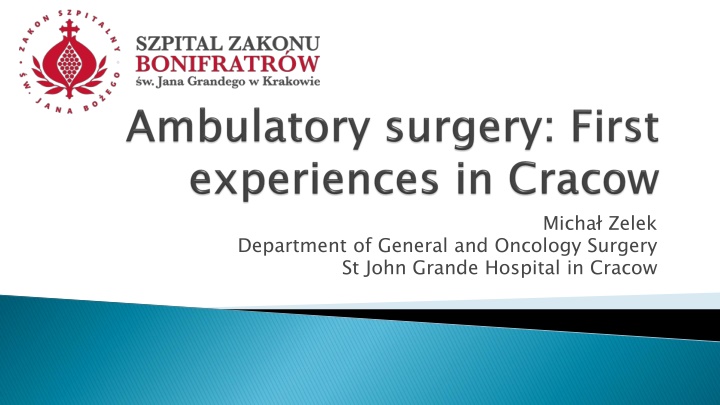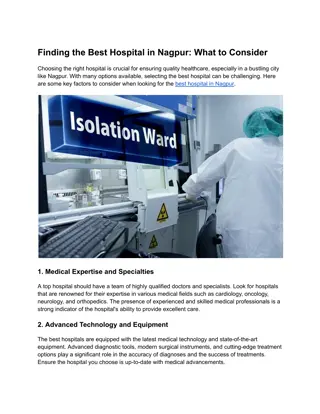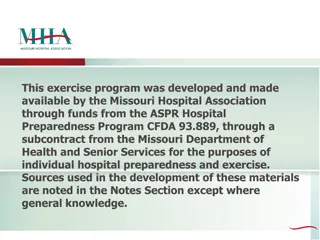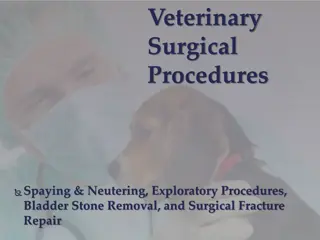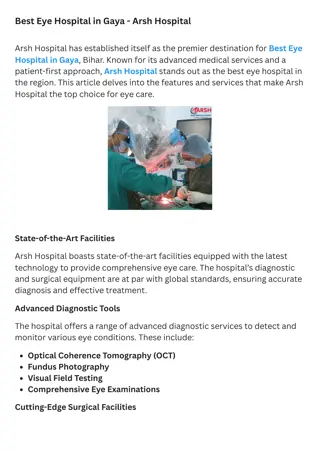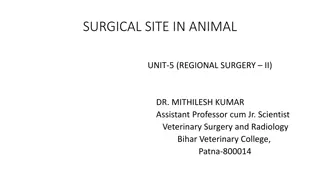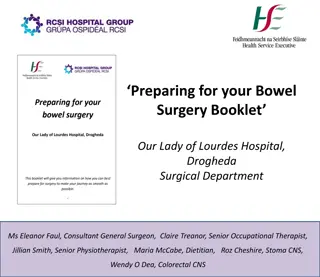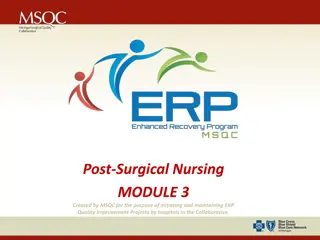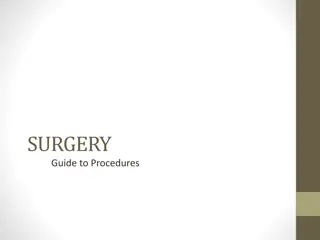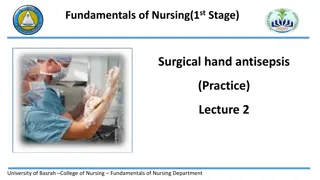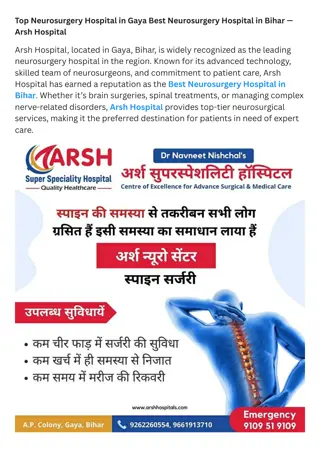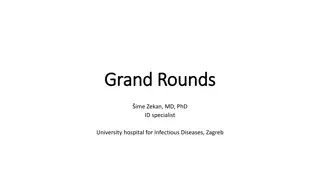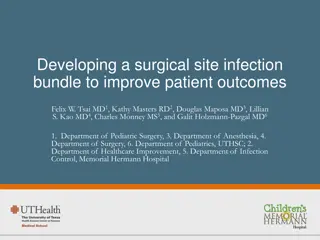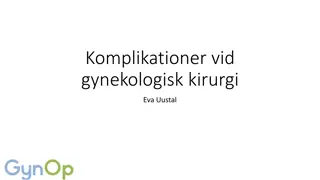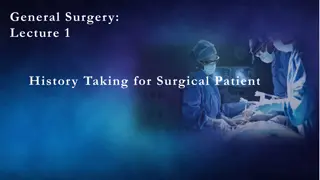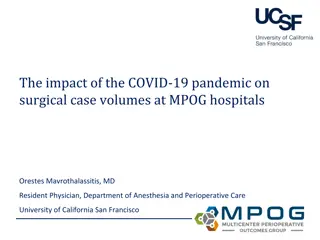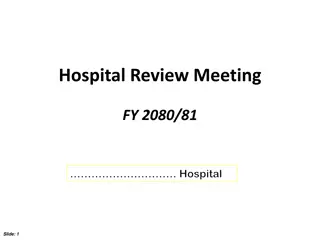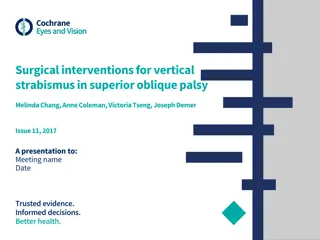Surgical Procedures and Patient Outcomes at St. John Grand Hospital
This content provides insights into common surgical procedures, hospitalization times, patient demographics, and outcomes at St. John Grand Hospital in Cracow. It includes data on hernia surgeries, hospital stay durations, patient groups, complications, and more.
Download Presentation

Please find below an Image/Link to download the presentation.
The content on the website is provided AS IS for your information and personal use only. It may not be sold, licensed, or shared on other websites without obtaining consent from the author.If you encounter any issues during the download, it is possible that the publisher has removed the file from their server.
You are allowed to download the files provided on this website for personal or commercial use, subject to the condition that they are used lawfully. All files are the property of their respective owners.
The content on the website is provided AS IS for your information and personal use only. It may not be sold, licensed, or shared on other websites without obtaining consent from the author.
E N D
Presentation Transcript
Znalezione obrazy dla zapytania szpital bonifratrw krakw Micha Zelek Department of General and Oncology Surgery St John Grande Hospital in Cracow
One of most common surgical procedures Over 70 000 procedures in 2016 in Poland Mainly performed as described by Lichtenstein Consired to be safe in ambulatory surgery
Average hospitalisation time 2015 47,6h (+/- 7,6) 2016 25,5h (+/- 6,9) 2017 7-12h Admission: 6-6:30 Operation: 7:30-12:30 Dissmission: 16-20 Follow up after 10-14 days, 3 months
2015 2015 2016 663 M - 603 F 60 67 M 61 F 6 2016 2017 621 M 565 F 56 73 M 67 F 6 2017 Lichtenstein 642 M 578 F 64 51 M 46 F 5 TAPP
Group of patients Group of patients 800 663 642 600 497 400 200 0 2015 - 48h Med.age - 57,25 2016 - 24h Med.age - 59,73 2017 - amb. Med.age - 60,73
No incarcerted hernia Mesh: Adhesix (59,8%) or Ultra Pro (40,2%) Fixation: glue (74,2%) or stiches (25,8%)
500 400 300 General Locoregional Local 200 100 0 2015 - 48h 2016 - 24h 2017 - amb
400 356 328 277 300 A1 A2 A3 A4 200 158 153 153 151 127 92 100 3 2 1 0 2015 - 48h 2016 - 24h 2017 - amb.
No unplanned readmission in all groups No major systemic complications
4.00% 3.00% heamathoma reccurency wound infection urinary retention 2.00% 1.00% 0.00% 2015 - 48h 2016 - 24h 2017 - amb
Causes of longer hospitalisation(21,4%) problems with mobilisation (1,5%) Nausea and vomiting (3,2%) Postoperative pain (0,8%) Haemathoma (4,6%) Urinary retention (5,1%) High-risk patients (26,0%) family causes (58,8%) Psychological comfort
Day-case ingunal hernia is safe and feasible Not common in Polish NHS Tasks for tomorrow: Local anaesthesia Longer follow-up
